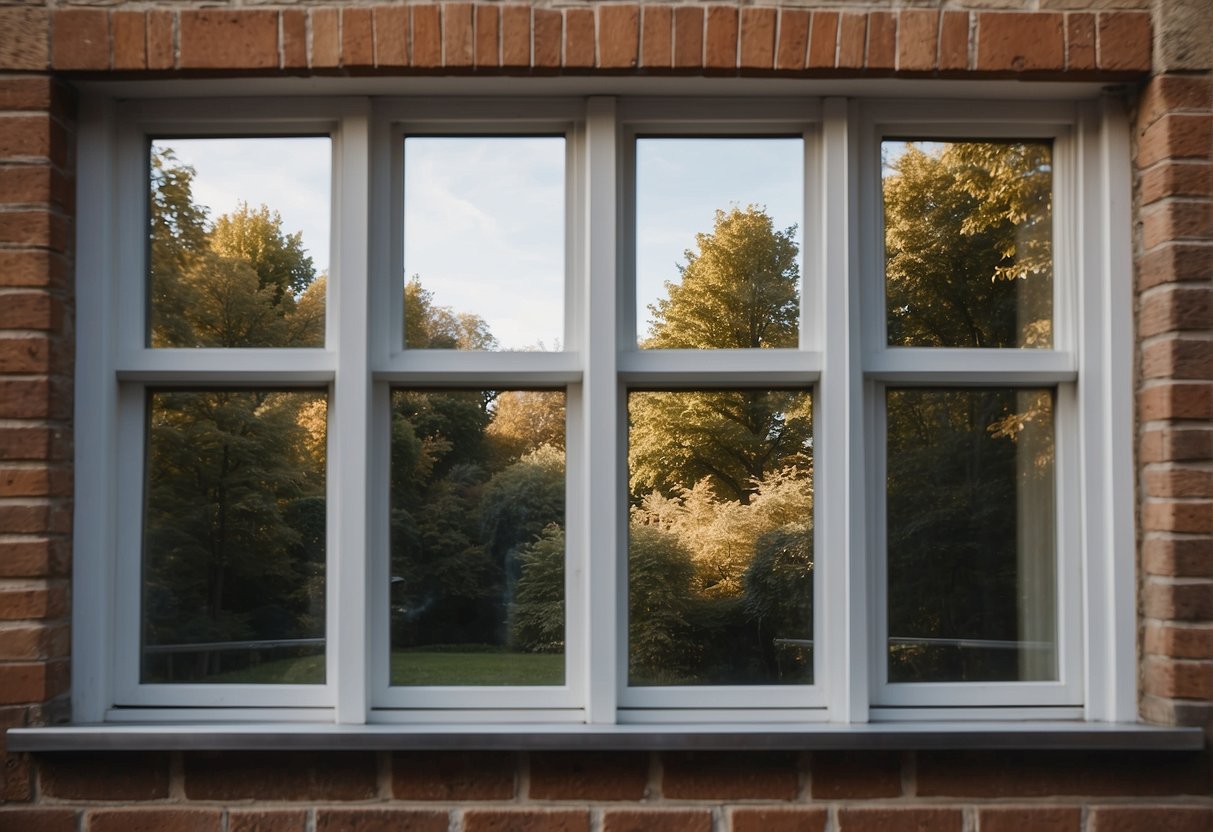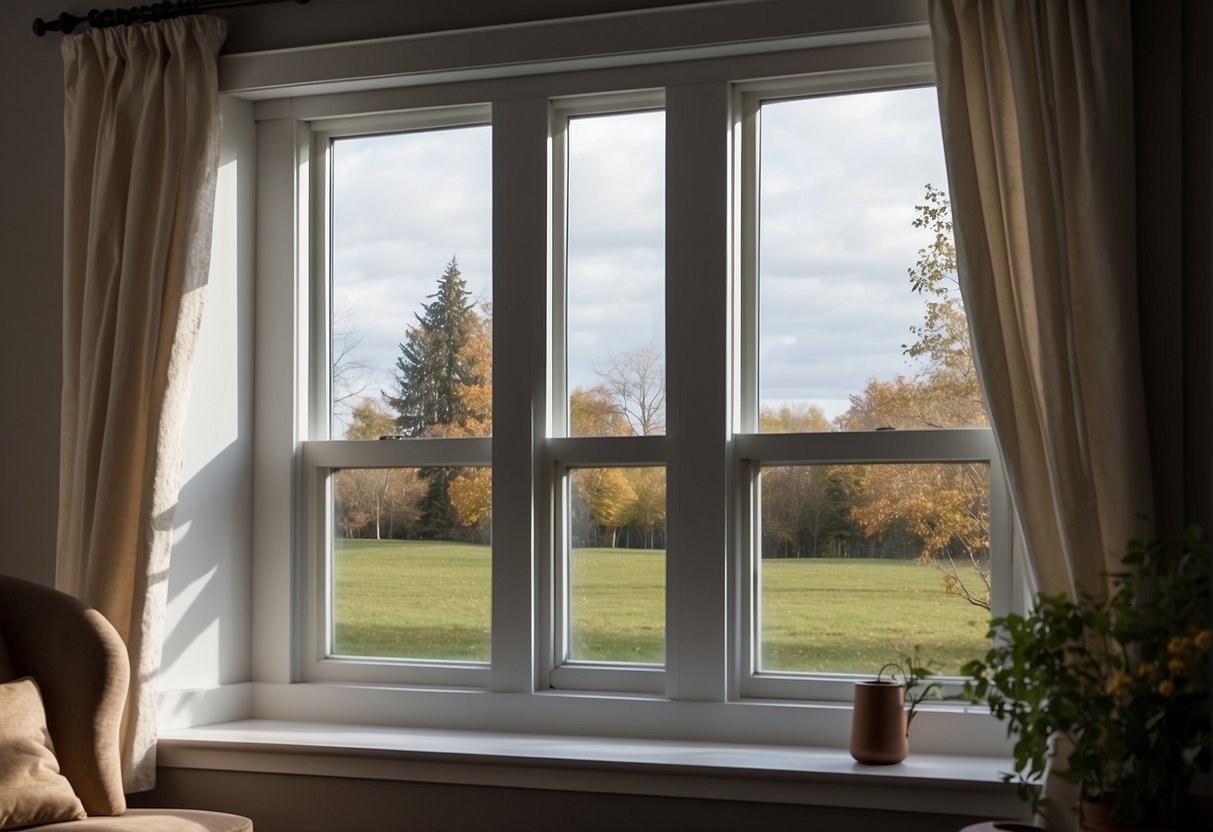When it comes to noise reduction in your home, one of the first areas you might look at is your windows. The question of whether replacement windows can mitigate the cacophony of urban living is a pressing concern for many.
The good news is that with advancements in window technology, replacing your old windows with new, specially designed models can provide a significant barrier against external noise, making your living space more peaceful.

Understanding how sound travels and the materials best suited to block it is key to selecting the right kind of replacement windows.
There’s a variety of window types and features such as double or triple-pane glass, lamination, and proper sealing that play crucial roles in soundproofing your abode.
Not only can new windows reduce noise, but proper installation and maintenance are vital to ensuring they work effectively over time. Additionally, other solutions like noise-reducing curtains or window inserts can complement the noise-reduction capabilities of your new windows.
Key Takeaways
- Replacement windows can decrease exterior noise entering your home.
- Specific window features and proper installation are critical for optimal soundproofing.
- Complementary solutions can enhance the noise-reducing performance of new windows.
Fundamentals of Sound Reduction in Windows

When you’re looking to reduce noise in your space, understanding how windows interact with sound is crucial. The right design and materials can make a significant difference in noise levels.
How Sound Travels Through Windows
Sound waves travel through the air and can penetrate your home through weak points like windows. Glass panes and gaps allow sound to pass through with ease.
Certain types of window inserts that fit into the existing frame can dampen incoming noise. These inserts may be composed of laminated glass, consisting of a plastic layer sandwiched between glass layers, which effectively disrupts sound transmission.
Key factors influencing sound penetration through windows:
- Glass Thickness: Thicker glass offers better sound insulation than thinner glass.
- Air Gaps: Windows with larger air gaps between panes provide better sound buffering.
- Seals: Proper sealing around the window frame is crucial to prevent sound leaks.
Window Design and Sound Insulation
Your window’s design plays a significant role in its ability to insulate against noise.
Double or triple-glazed windows have multiple layers of glass with air or gas between them, which acts as a barrier to sound. Special coatings and gases like argon can improve a window’s soundproofing capabilities.
Components essential for soundproofing windows:
- Glass Panes: Multiple panes with space in between can reduce noise infiltration.
- Frame Material: Denser materials, like vinyl or wood, can help dampen sound more than aluminum.
- Laminated Glass: A layer of plastic incorporated within the glass can soundproof your windows further, by breaking up sound waves as they try to pass through.
Choosing the right windows involves considering these aspects to achieve a quieter, more peaceful indoor environment.
Types of Replacement Windows for Noise Reduction

When considering replacement windows to reduce outside noise in your home, there are specific types engineered for sound attenuation. These window options are designed not just to improve the look and energy efficiency of your home but also to create a quieter, more peaceful environment.
Double-Pane Windows
Double-pane windows consist of two panes of glass with an airspace in between. This design creates a barrier that significantly reduces the transmission of sound compared to single-pane windows.
Performance varies, but double-pane windows typically have a higher Sound Transmission Class (STC) rating, meaning better noise reduction.
Laminated Glass Windows
Laminated glass windows include a layer of plastic between two layers of glass, which not only improves safety and UV protection but also enhances noise reduction abilities.
Laminated glass is particularly effective at preventing high-frequency sounds from penetrating the window, resulting in a quieter indoor environment.
Soundproof Window Frames
The frame of a window plays a crucial role in its soundproofing ability. Materials like vinyl or wood composite can absorb sound waves more effectively than traditional aluminum frames.
Furthermore, frames featuring airtight seals can further augment noise reduction, ensuring your space remains serene and undisturbed by external noise.
Installation and Maintenance Tips

To ensure that your replacement windows effectively reduce outside noise, pay careful attention to how they are installed and maintained. Properly installed and maintained windows can make a significant difference in the acoustic comfort of your space.
Proper Installation Techniques
To start, ensure that your replacement windows fit perfectly in the opening. Gaps or cracks can significantly reduce the soundproofing capabilities.
During installation, use acoustic sealants for the best results. These sealants provide an airtight seal which can prevent noise leakage.
Additionally, consider hiring a professional installer who can guarantee that the windows are correctly aligned and sealed.
Maintaining Window Seals
Over time, window seals may degrade or become less effective at blocking noise.
Periodically check the integrity of the sealant around your windows, looking for visible signs of wear such as cracks or gaps.
If necessary, apply new acoustic caulk to maintain an airtight seal.
Furthermore, keep the moving parts of your windows well lubricated, as this can prevent air (and sound) from slipping through any unintended openings.
Additional Noise-Reducing Solutions

Beyond replacing windows, there are additional steps you can take to minimize the intrusion of external noise into your home.
Window Treatments
Curtains and Drapes:
- Heavy curtains can help dampen external noise.
- Think about thermal or blackout curtains for an added layer of sound insulation.
Blinds and Shades:
- Cellular shades, also known as honeycomb shades, trap air and can provide sound insulation.
- Install layered blinds with a thick fabric to absorb sound effectively.
Exterior Noise Barriers
Landscaping:
- Plant dense shrubbery or a row of trees as a natural sound barrier.
- Leverage earthen mounds (berms) to deflect noise away from your home.
Structural Solutions:
- Consider erecting a solid fence or a wall, which can also serve as privacy measures.
- Soundproofing panels can be added to existing barriers for enhanced noise reduction.
Frequently Asked Questions
In your quest for peace and quiet, you might be considering new windows. Below are the FAQs that delve into the specifics of how different windows and their features can contribute to noise reduction in your home.
Do triple pane windows offer better noise reduction than double pane?
Triple-pane windows typically provide better noise reduction than double-pane windows due to the additional layer of glass and gas fill that serves as an extra barrier to sound waves.
What are the most effective window features for soundproofing?
Laminated glass and thick glass are among the most effective features for soundproofing. The type of window frame and the presence of insulating gasses between panes also play significant roles.
Can installing new windows significantly quieten my home from external sounds?
Yes, installing new windows can significantly quieten your home from external sounds, depending on the window’s materials and the previous windows’ condition.
Are there specific window treatments that can help block out noise?
Heavy drapes and specialty window inserts can supplement your windows in blocking out noise.
How does the window installation process impact noise reduction?
If a window is not sealed correctly, gaps can let in noise just as easily as air.
What should I consider when choosing windows for sound insulation purposes?
When choosing windows for sound insulation, consider the Sound Transmission Class (STC) rating.
Also, think about the type of glass, and the quality of the window frame and sealant used.






